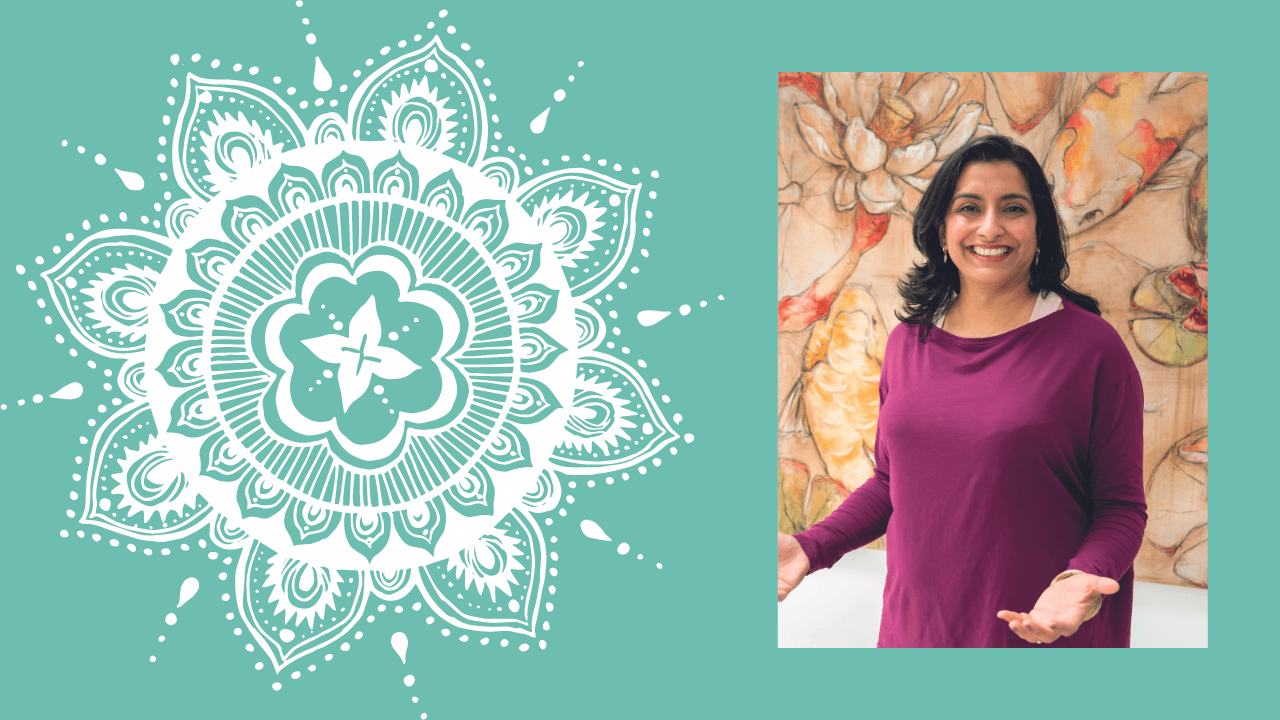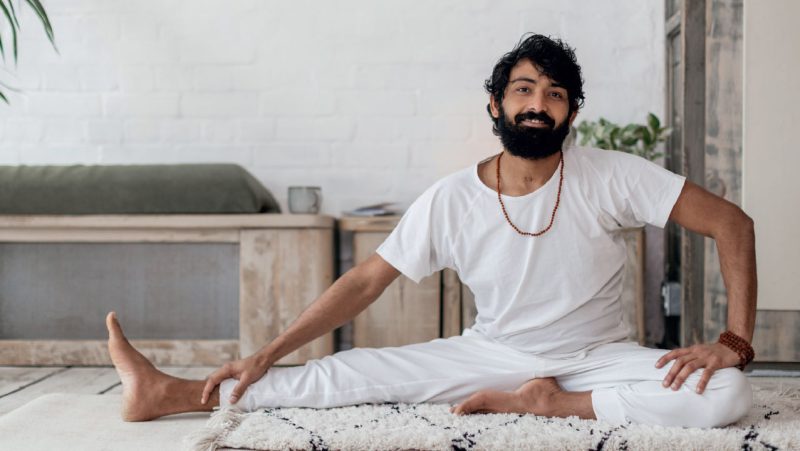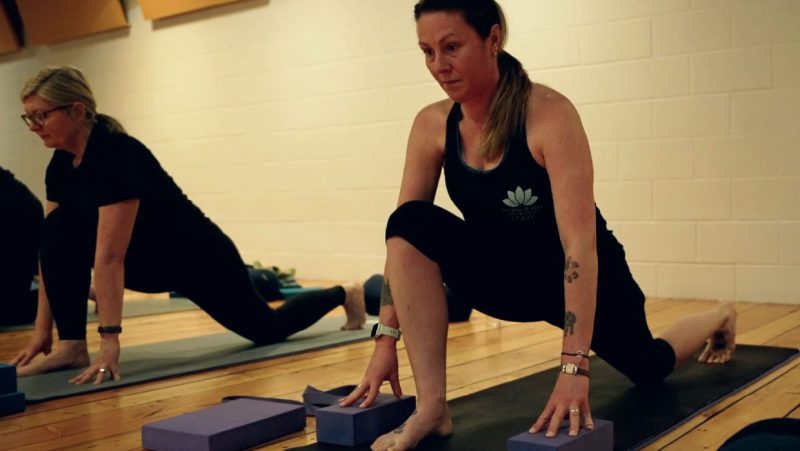
My Yoga Biz
Tips from the experts to help you grow the yoga business of your dreams
This month’s mentor:
Anji Gopal, 49, BackCare Foundation, London (backcarefoundation.com)
Starting out: Does teacher training really set you up for running your own yoga business?
No, I don’t think so. Like many others, I embarked on teacher training as a way to find out more about yoga. I wasn’t anticipating teaching at all. Even when I started teaching classes (for money), the business wasn’t the foremost concern – I just wanted to share yoga! In a way, it’s been similar to osteopathy – most osteopathic students are at university because they want to help people, not because they think of it as a ‘business’.
However, I think this aspect of yoga needs to be emphasised more on trainings, even if the business training is optional. Essentially, once you are a yoga teacher, you are running a small business (like it or not!) even if the only employee is you! But it’s your time, your energy, your input – and you have to work out why you are doing it and if the reward (monetary or otherwise) is worth it. Otherwise, we can get burnt out, teaching all the time, without understanding our real intention.
Business plans: Do you have one? What’s the ‘magic' in it? If you don’t have one, why not?
In my earlier career, I helped businesses grow – so I know the value of a business plan. Yes, I have one, but not a ‘line-by-line’ one. At the start of each year, I sit down with my coach and explore my personal goals for the coming year – in clinic, in class, online, in training, at home with my family. Where will I allocate my time this year – what’s most important? (For example, this year one of my sons sits his A-levels, so from April to June I will keep my diary quieter to be able to provide any support he needs).
I’m lucky, this part of my ‘career’ is about my own personal development rather than making money. My drivers are to help others – to share the knowledge that yoga can help those with back pain. It’s not driven by the numbers, but the fulfilment I will get from doing X, Y or Z. In practical terms, the numbers sort of drop out at the bottom of the planning!
Whether you teach for money or for fulfilment, I think everyone needs a plan. Your time on this earth is precious – how do you want to spend it? My advice is to put aside time at the start of the year to look forward – what do you want from the year ahead – your whole self? Once you have this intention, other decisions become easier. (And don’t forget to schedule a catch-up review of your plan, every quarter, to see how you are getting on).
What’s your niche, and why did you choose it?
I’m a BackCare Expert – the combination of yoga and osteopathy works really well. Active and passive treatment, brought together in the clinic and classroom. My private clients are typically professionals in their 40s and 50s who find that back pain gets in the way of doing what matters. In the NHS, my patients have persistent low back pain and are often really ‘stuck’ in their patterns. It is so uplifting when something I teach helps someone – I still can’t get over that!
An estimated 20-40% of adults in the West have back pain, so it’s a huge issue. I’ve tried and tested my methods in hospital, clinic and studio settings, and it’s just a pleasure to be able to share these with patients, students and teachers.
My clinical work has led to me teaching other teachers and other therapists how to do this work to help even more!
What’s the secret to making a living teaching yoga? Is it even possible?
Teaching yoga on its own would not ‘make a living’. I live in London, I have a family – the cost of living is expensive and as a mum I don’t have the ability to teach all hours, seven days a week. Going back to ‘running a small business’ as a yoga teacher – we each need to work out how much money we need to earn and then explore if teaching yoga alone can facilitate this. Often it can’t.
My first degree was in economics, and I can see that the ‘economics’ of the ‘yoga industry’ are challenging. Supply and demand metrics are unbalanced – teachers are paid a pittance, but neither studios nor gyms are making loads of money either. The only part of the industry making huge profits are selling kit or clothing, not actual yoga.
Teaching yoga works for me because it’s an adjunct to my clinical work – in my own clinic. I enjoy teaching yoga classes so much I don’t think I will ever give them up, but I’m lucky I can support this teaching with other lines of work.

Asking for help: Do you use a business coach or mentor? What do you get out of it?
Yes! I have been working with my coach and mentor for three years – it’s invaluable. Whilst I had a background in finance and business, running my own business was a whole new ballgame. Working with a mentor, I have grown as a person, as a businesswoman and been encouraged to take risks and to put myself ‘out there’ – all in order to help more people. I’ve also been challenged, questioned and held to account. Something that friends and family don’t always do.
I always thought (living in the yoga world) that a ‘guru’ would come – take me under their wing and help me grow as a teacher. I don’t think this exists right now, but having a mentor has worked wonders for me – I’ve pushed ahead so much in the last few years. A sounding board, a trusted friend, an expert – a mentor can be all of these.
Think of getting a coach as being a mini-MBA for your business – you could spend years learning about all aspects of business, but if someone has already done that learning and can share it with you quickly, why not super-charge things and benefit now? Benefit from their expertise – they will have made mistakes and learned from them – so you can to.
With this experience and my own background in business, I also mentor fellow teachers who are starting out and aren’t sure which way to travel. I help them clarify their intentions and take practical steps to get on the right road towards a balanced yoga life.
Future trends: How do you think the business of yoga teaching will change in the coming years?
Firstly, I think the yoga world is still in a state of flux. Market dynamics are still shaking things around – post pandemic and the emergence of online yoga. As a teacher and trainer, I see these main trends:
Studio teaching is slowly getting back on its feet – but practicing yoga online is such a huge development and has changed us all in so many ways; it’s never going back to ‘how its was’.
Frankly, there are so many positives to online yoga – convenience, accessibility and more. As a ‘yoga consumer’ you can get whatever you want, whenever you want – we won’t ever go back. This works really well if you ‘just’ want a class or a course, or access to a teacher that is geographically distanced. I also think it has encouraged students to understand the benefit of building a self-practice – which has to be one of the goals of yoga practice.
I’ve had students from Australia, Canada and all over Europe attend my trainings – this wouldn’t have been possible pre-pandemic. It’s really fabulous. But students of real yoga will want to go deeper; will want a deeper connection with their teacher, with the material, with the self. Time to understand, to explore, to deepen knowledge. I see a rise in workshop and retreat attendances, in hybrid courses – part online, part in-person.
I also see a rise in specialism in yoga teaching – if you can access a bog-standard Vinyasa class online, in the park, at the gym, these are already commoditised and it’s difficult to stand out. But as we realise how important health really is, many students will seek to deepen their studies in order to drive out more health benefits.
So, specialist teaching and training is going to continue to be attractive. Restorative and Yin are well known, but there are more distinct practices for health and wellbeing, meditation, breathing, targeted health and I suspect more will emerge. Yoga teachers just want to share the benefits of yoga.
I fundamentally think each teacher needs to think about and understand what they are offering – what’s the intention behind your teaching? What are you looking to share and why? Once we each answer that question, our path becomes clear.
Written and compiled by Claudia Brown (yogabyclaudia.com)







